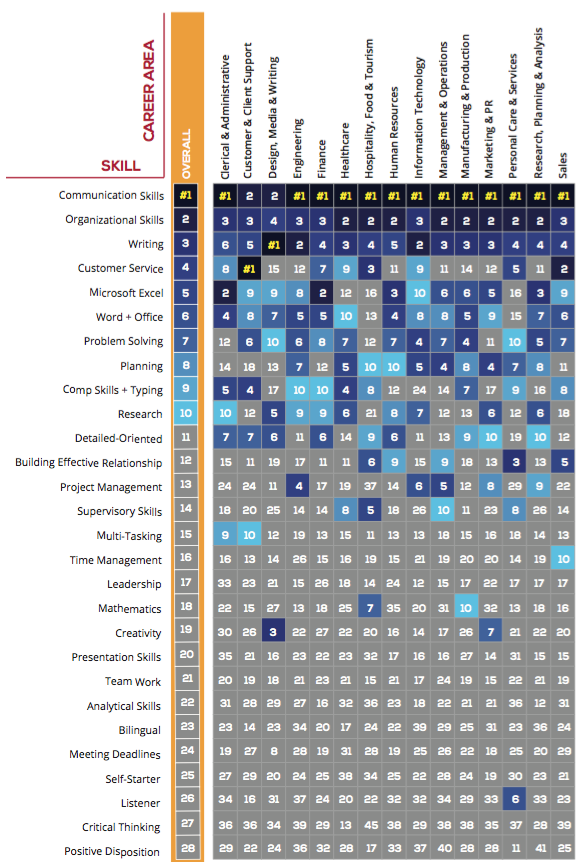Business and personal connections can help you network. These connections may also help you develop better communication skills that, in turn, help you build relationships with your peers. Additionally, effective business communication skills can make the workplace run more efficiently. I have had the pleasure of conducting an interview via phone and email with Adam C. Knepp who gave me insight on effective communication skills that can benefit you for the future. Mr. Knepp graduated from the University of Southern Indiana with a Bachelor of Science degree in Accounting. Adam currently works in the position of being the Sr. Director of Operations and Strategy with Surgery Partners.

What is your professional history?
“My resume is not currently updated with my current job [edited], but it gives you a summary of my roles/positions up through my last as the Financial Reporting Director at NSH (which should read Apr-14 – Oct-17). On the eve of my graduation from Duke (Dec-17), I accepted a role as the Sr. Director Operations & Strategy with Surgery Partners which I’m still working in today (Oct-17 – Present). It’s my first position outside of finance/accounting, which has been a really good change. I’m run a team with two analysts, and we’re in charge of growth and market strategy for the facilities in our portfolio (we run surgical hospitals/outpatient surgery centers all over the country)- My day-to-day consists of driving growth initiatives, providing decision support and helping run/manage our facilities.” https://www.linkedin.com/in/adam-knepp-1101b414/
What writing advice do you have for professional communicators?
“There is such a wide-range of professional communications that it’s difficult to provide advice that would be all encompassing. However, in my career – which has consisted of a lot of audit and technical accounting proofs and support, but also plenty of email and verbal communications with clients or internal personnel (which would apply to most any job) –
I’ve found it imperative to always be professional and as succinct as possible. Never put something in an email that is better discussed live.
My rule- If your email starts to get confusing or long, set up a call.”
What is one of your pet peeves when it comes to professional writing?
“Improper grammar. It’s okay to use slang/jokes over the phone or in person – that’s part of human interaction – but when you’re documenting something… an email, a memo, a workpaper – be clear, concise, and use proper grammar.”
What kind of business reports do you read and/ or compose regularly?
“I used to defend our audit positions (while in external audit with Deloitte and internal audit with Abbott) with memos- This was basically a summary of why we landed where we did and why that was appropriate and covered the risk areas. When I moved to external reporting with AbbVie and NSH, I had to defend my reporting/accounting approaches through technical accounting proofs (in memo form)- These memos/proofs served as the starting point for the external auditors when they started their review. In a way these documents had to serve as bullet proof mediums for why I was right in how I accounted for a specific transaction, etc. I don’t do any of that anymore, but I now need to clearly document why we’ve chosen to do what we do at certain facilities – whether it be buy a physician practice or MRI business, expand our current building to open an additional OR, hire a physician, etc. – as these are all uses of Corporate resources to drive a return, something that is scrutinized heavily at the very top. I need to clearly defend my assumptions, explain what we thought would happen, what did happen, variances between those two themes, etc. So the lessons I learned previously in my audit/tech accounting career – be professional, clear, concise and complete– has served me well in this position too.”
What are your writing suggestions to make those types of reports successful?
“To work on improper grammar, as referred before.”
What speaking advice do you have for professional communicators?
“Speaking is tough. No matter how far I make it my career, this is something I still struggle with- I think everyone does unless you’re truly one of those naturals that just love it. For me, whenever I need to speak, it’s important for me to be fully prepared and knowledgeable on the topic at hand. This is easy when it’s something I know a lot about – When it’s not, I have to do my homework. The whole purpose of being prepared is to feel comfortable. It takes a bit of the fear factor away for me. Next, I have to run through the presentation a few times so that I know the important points I need to get across. You don’t want to have it memorized – because then you may sound like a robot – but you do want to understand where you want to go as the conversation takes on a life of its own. I like to involve the audience… in graduate school, we learned that everyone’s mind starts to wonder after 5 or 10 minutes if they’re not somehow brought back to focus. So you have to drop in hooks every now and then, such as a question or a story. That creates audience involvement and ensures everyone is paying attention, but it also allows them to drive the conversation, so you need to be able to control that. Lastly, your presentation needs to be appropriately organized. There needs to clearly be a start, body and finish and your transitions between topics/sections need serve like a road map. For instance, when transitioning between Topic 1 and Topic 2, I may say something like ‘So as stated at the beginning, today I’m summarizing physician ortho practices to you – how they run and where they profit. We’ve talked about physician recruitment, now I’m going to discuss physician engagement before moving on to coding/billing.’ It’s incredibly important to do that because it easily organizes the information for everyone. They always know where they’re at, what we’re talking about and where we’re going. Your transition slides can aid in this by highlighting where we’re at in the map to the end. Some of my professors used this approach in college, and it was unbelievable what a difference it makes. Oh, and last word of advice on speaking, Be Confident. That’s something I have to remind myself of constantly.” https://www.briantracy.com/blog/public-speaking/27-useful-tips-to-overcome-your-fear-of-public-speaking/
Name one thing you wish you had known about business communication prior to your professional career?
“The presentation organization that I just referenced above was probably one of the most important things I took away from my graduate school at Duke. When you can clearly communicate – especially in front of a group of people – it is remarkable what that can do for your career. It allows you to influence, guide others and create change – All traits that are paramount for any leader. It also gives people confidence in your abilities. I think the other piece that I do differently now than when I started is just have more face-to-face or over-the-phone communication vs. email. It’s easy to drop a note to someone – we’re millennials and we’re used to doing that – but things are oftentimes much more easily (and quickly) handled through a conversation. I try to minimize my email traffic on a daily basis.”
After assessing the Burning Glass list of Baseline Skills (2016), which skills not in the top 5 would you move into the top 5…and why?
“Communication I think is super important, and that it should stay. I think of organization and planning as the same thing, so I don’t really know which of those would be more important. Writing, like I said, the first ten years of my career were super important. However, not as important now because we don’t do as much occupational writing, so I would probably swap that out for problem solving. The reason I say that it because I feel like problem solving is essentially what every job is, and that is what I do every day from an operational perspective. Customer service I would swap out for probably relationship management. I think excel is super important, and PowerPoint is incredibly important in what I do right now because we do a lot of pitches. I think presentation is super important too, but I put that with communication.”

What team skills do you feel young professionals need the most?
“All projects are better tackled by a diverse group of individuals acting as a team for a common cause. One thing I learned in graduate school is that we all come from very different professional/personal backgrounds which means we all look at problems differently, from a unique vantage point. And that’s all any management job really is- Solving problems. It’s important to have the diversity so you don’t miss anything. It’s also important for all team members to realize 1) their opinion is important – even if they think everyone already knows it – because a lot of times they don’t and 2) you don’t know everything (somebody else may have a better idea/way of doing things).
Your ability to interact with that team – recognize when you need to defer vs. when you need to hold your ground, support others, lead when you need to, rally support – is what will make you successful in your career.
Because in today’s world, team work is what we use to tackle 99% of major problems.”
Key takeaways
An important takeaway from this interview is that the way you communicate with a business will be important. Noticing that to construct any type of professional writing, it is necessary to excel in proper grammar. In addition, as Mr. Knepp said, he valued his presentation skills, and there is always room for improvement in this skill that many can benefit from. With this being said, it is important to take advantage of the opportunities given sooner than later. Having an open mind when it comes to team work will also help most groups take everyone’s thoughts and ideas into consideration. Being able to make these changes now, will greatly affect anyones skills for the future.
While Adam attended the University of Southern Indiana (USI) he was on the Summa Cum Laude Dean’s List from 2003-2007. Meanwhile, Adam worked for a Finance Analyst Co-op job at General Electric, Plastics from September 2005-August 2006. During the years of 2006 and 2007 Knepp was also the Beta Alpha Psi Fraternity, Chairman of Fundraising Committee and President of the Accounting Club. After graduating from USI in December 2007 with a 4.00 GPA he became an Audit Senior at Deloitte & Touche, LLP in January 2008. Two years later, Knepp became the Senior International Financial Auditor for the company Abbott Laboratories. Abbott later carved out the pharmaceutical side of the business and made its own company called AbbVie Inc., which Adam later worked in November 2012 as a Financial Reporting Manager. Before Knepp’s current job, he worked at the National Surgical Healthcare facility as a Financial Reporting Director. Then on the evening of his graduation from Duke University in 2017, with a Master of Business Administration degree, he accepted the position as the Sr. Director Operations and Strategy with Surgery Partners. This is Adam’s first job other than financing and accounting, but he enjoys the experience of trying something new.

Jaila Cunningham is an accounting student in the Romain College of Business at the University of Southern Indiana.

